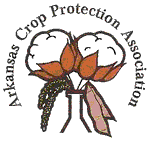Abigail Norsworthy won first place in the undergraduate student competition with a paper titled Evaluation of Rice Tolerance to Clomazone when Treated with Fenclorim. Current research at the University of Arkansas involves exploring new methods of managing weeds in rice production. Chloroacetamide herbicides are not labeled in U.S. rice production. Still, studies conducted by our research group have demonstrated the efficacy and safety of a fenclorim seed treatment in conjunction with these herbicides. Most recently, clomazone, a group 13 herbicide (diterpene synthesis inhibitor), applied to the soil after planting fenclorim-treated rice seed resulted in less injury to the crop than the safener’s absence. To gauge the extent of rice safening to clomazone by a fenclorim seed treatment, a greenhouse experiment was conducted in Fayetteville, AR, during the fall of 2022. The experiment compared fenclorim-treated rice with non-treated rice while applying clomazone at seven rates (0x, 0.5x, 1x, 1.5x, 2x, 3x, and 4x times the recommended field rate of 336 g ai/ha) to a silt loam soil. As the clomazone rate increased, the percentage of injury to rice in the form of bleaching increased, but more so when rice was not treated with fenclorim. At the 4X clomazone rate, all emerging rice plants had total mortality. In contrast, fenclorim-treated rice at the same clomazone rate had only 40% mortality relative to non-treated plots. Rice aboveground biomass and groundcover, based on green pixels determined from Turf Analyzer software, followed similar trends to observed rice injury, indicating a strong safening of rice to clomazone from fenclorim. This study provides evidence that fenclorim-treated rice has the potential to mitigate the bleaching effects of clomazone applications and should be further evaluated in the field over a range of soils and environmental conditions.

 Tristen Avent Wins PhD Student Competition at the 2024 ACPA Research Confer...
Tristen Avent Wins PhD Student Competition at the 2024 ACPA Research Confer...